University home | Studying | Research | Business and community | Working here | Alumni and supporters | Our departments | Visiting us | About us

Exeter MR Research Centre
- Staff Profiles
- Our Research
- Our Facilities
- For Participants & Public
- Visiting Us
- Restricted Access
MRI Scanner
The Centre houses a Philips 1.5 T whole-body imager (Gyroscan Intera with Explorer gradients), dedicated to research.
Waiting Room
A large warm waiting area with changing room
The Exeter MR Research Centre is a collaboration of the University of Exeter, the Exeter Medical School and the University of Plymouth. The Centre is jointly run by the Schools of Physics, Sports Science and Psychology at Exeter, the Institute of Neuroscience at Plymouth and the Exeter Medical School.
- Find out about our rsearch activites and projects.
- Find out about our facilities for research.
- Brain’s response to threat silenced when we are reminded of being loved and cared for.
- The Exeter MR Rsearch Centre has received the Green Impact Gold Award for 2014.
- Tim Hodgson’s article has been voted as one of the top 10 best all time papers published in the American Psychological Association (APA) publication.
- Huge media coverage for the fMRI study (exercise and smoking) carry out by Kate Janse van Rensburg and co-authors.
- A Radio 4 programme (Creative Genius) recorded at the MR centre by Howard-Jones, PA.
Using our site | Freedom of Information | Data Protection | Copyright & disclaimer | Privacy & Cookies |
For students
- Current Students website
- Email web access
- Make a payment
- iExeter (students)
- Programme and module information
- Current staff website
- Room Bookings
- iExeter (staff)
- Finance Helpdesk
- IT Service Desk
Popular links
- Accommodation
- Job vacancies
- Temporary workers
- Future Leaders & Innovators Graduate Scheme
New and returning students
- New students website
- Returning Students Guide
Wellbeing, Inclusion and Culture
- Wellbeing services for students
- Wellbeing services for staff
- Equality, Diversity and Inclusion
- Israel, Palestine, and the Middle East
REACH: The Centre for Research in Ageing and Cognitive Health
- The Medical School
- Publications and Resources
- Postgraduate study
Get involved

Links to other resources for people with dementia and carers
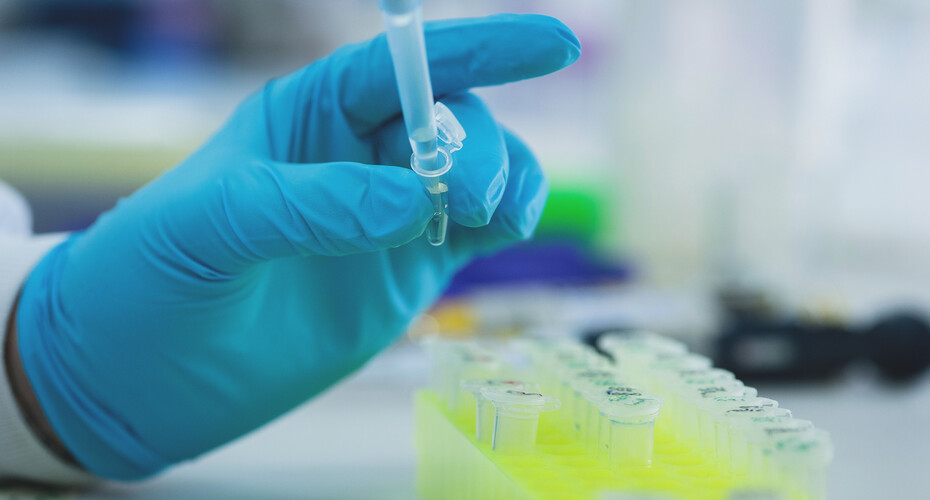
Get involved with REACH research
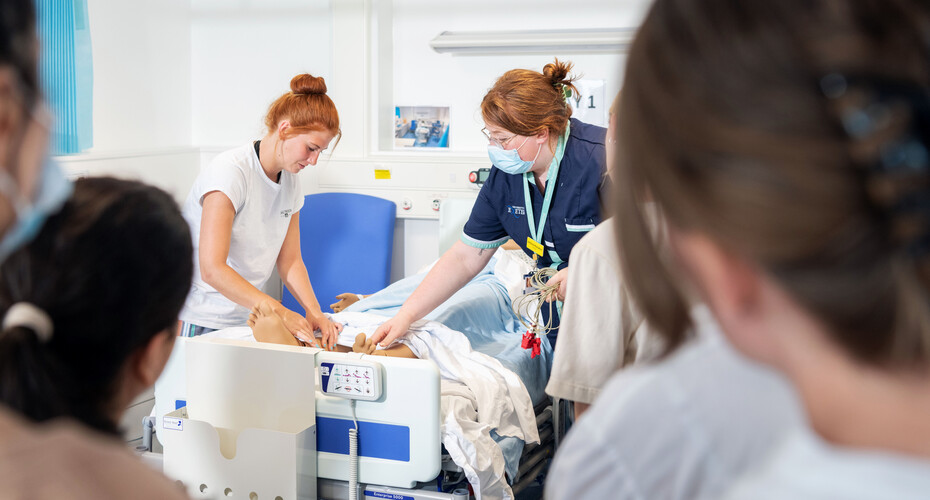
Links to our local Applied Research Collaboration (PenARC)

Our aim is to improve the lives of older people and people with dementia through research.
Publications and resources

Download and read our publications and resources.

Read more abut our latest news
Connect with us
Information for:
- Current students
- New students
- Alumni and supporters
Quick links
Streatham Campus
St Luke's Campus
Penryn Campus
Truro Campus
- Using our site
- Accessibility
- Freedom of Information
- Modern Slavery Act Statement
- Data Protection
- Copyright & disclaimer
- Privacy & cookies
Translating scientific discoveries into benefits for patients
We carry out high-quality scientific research into the health areas that are most important to our communities, putting people at the centre of our work.
Clinical mycology
Genetics and Genomics
Neurodegeneration
Rehabilitation
We support academic capacity development and training across the full career spectrum, from pre-doctoral to post-doctoral, ensuring equal access to opportunities
Find out more
Putting people at the heart of our research
Working in partnership with industry to bring health benefits to the people of the South West and beyond
Our research projects View all research projects
We help to progress high-quality translational research across our theme areas, addressing the most pressing health issues for our communities. You can explore our research work here.
Antifungal drug delivery in a 3D infection microenvironment
Improving treatment for fungal infections
Developing a protocol to isolate motor neurons from post-mortem brains for molecular profiling
Improving DNA testing for neurodegenerative diseases
Is BCG immunisation resulting in protective immune responses against fungal pathogens?
Researching whether BCG vaccination helps to prevent fungal infections
Movement technology for home rehabilitation
Improving rehabilitation services using technology
Predicting Prostate Cancer in Primary Care Settings
Improving the accuracy and speed of prostate cancer diagnosis
Using Magnetic Resonance Imaging to investigate Glymphatic System alterations in Clinically Isolated Syndrome
Understanding the role of the Glymphatic System in Multiple Sclerosis
Whole genome sequencing to identify cis and trans regulators of the proteome
Identifying genetic variants associated with levels of proteins circulating in blood
We use cookies to give you the best experience of our website. By browsing you agree to our use of cookies.
For students
- Current Students website
- Email web access
- Make a payment
- iExeter (students)
- Programme and module information
- Current staff website
- Room Bookings
- iExeter (staff)
- Finance Helpdesk
- IT Service Desk
Popular links
- Accommodation
- Job vacancies
- Temporary workers
- Future Leaders & Innovators Graduate Scheme
New and returning students
- New students website
- Returning Students Guide
Wellbeing, Inclusion and Culture
- Wellbeing services for students
- Wellbeing services for staff
- Equality, Diversity and Inclusion
- Israel, Palestine, and the Middle East
- Health and Care Professions
- Faculty of Health and Life Sciences
- Our departments
- Medical Imaging Centre
- Academy of Nursing
- Medical Imaging
- New students

Welcome to the Medical Imaging Centre
The Medical Imaging Centre is a major research facility within the Department of Health and Care Professions. This state-of-the-art facility is located on St Luke’s Campus , University of Exeter, and supports the Faculty of Health and Life Sciences, as well as other Faculties and external users.
We provide both imaging equipment and experienced staff, to assist researchers and students in collaborative and multidisciplinary research by applying clinical and advanced medical imaging techniques to address key questions in clinical research. We have a track record of collaborating with research and industrial partners for facilitating research in these areas.
We also work closely with the Mirielle Gillings Neuroimaging Centre which is based at the nearby Royal Devon and Exeter Hospital site.
The Centre is run within the Department of Health and Care Professions which sits in the University's Faculty of Health and Life Sciences. The Centre is run by the Director alongside key colleagues in the Medical Imaging team, a Lab Manager and in collaboration with Exeter Innovation team. We fully integrate several modalities, including portable and static radiographic equipment, multiple ultrasound scanners, high resolution pQCT, and bone health diagnostic tools such as DXA (GE iDXA), Echolight, and Bindex systems. We offer vascular testing systems such as Near Infrared Spectroscopy and Doppler ultrasound.
We also work in collaboration with the Mirielle Gillings Neuroimaging Centre which offer 3T MRI and PET/CT facilities.
Although set up as a single integrated multi-user facility, we have separate Leads for all domains of the facility in order to provide efficient and high-quality service covering the varied aspects of imaging. As a TRAC-rated research facility, the Medical Imaging Centre is based on a full economic costing principle. However, several 'low cost' schemes have been implemented to initiate research projects and support research grant applications.
Our aim is to support research projects within the University of Exeter, as well as external projects and collaborations with state-of-the-art facilities and specialist knowledge on clinical medical imaging and diagnostic radiography.
We invite you to Meet the Team and to browse through the different equipment that we have.
Our equipment
- Siemens Multix Fusion Digital Radiography
Our digital radiography Siemens Multix Fusion x-ray suite has all the requirements of a clinical x-ray room, making it ideal for research and educational activities. The system integrates with an internal Insignia PACS network and educational podium and smart board within the room. Additional dosimetry and simulation equipment are also available on request
- Canon and Siemens Ultrasound Scanners
Bone health
Bone health diagnostics are a priority area for the Medical Imaging centre with a GE iDXA scanner onsite. We also have a Stratec peripheral quantitative computed tomograph (pQCT) scanner for the measurement at femur, radius or tibia, including evaluation of volumetric bone density, bone geometry and muscle parameter at the forearm, upper or lower leg.” Alternative osteoporosis screening tools such as QUS, Echolight and Bindex systems are also onsite.
- GE iDXA Scanner
- Stratec pQCT 300o
Lab equipment
The Medical Imaging Centre has a range of educational and research based lab equipment for radiographic studies. Examples include dosimetry equipment such as the Harshaw TLD reader, RTI Piranha dosimeter, and an adult CIRS dosimetry phantom. Other systems include an Artinis continuous wave NIRS system and PHYWE table top x-ray units. We have access to virtual radiography simulation software (both 2D and VR) and anthropomorphic phantoms to aid our students’ education.
Dr Robert Meertens
Director of the Medical Imaging Centre
Rob is the Director for the Centre and Senior Lecturer in Medical Imaging. He is a diagnostic radiographer by background and has been in an academic post at the University of Exeter since 2013 with his research interestes sitting predominately around bone health diagnostics. Through Rob's role as Director of Business Engagement he has seen the wide-ranging industrial interest in artificial intelligence applications applied to both bone health and radiology more generally.
Email: [email protected]
Phone: +44 (0)1392 722511
Rich Cassidy
Professor Karen Knapp
External Business Engagement Lead
I am the Impact and Partnership Development Manager for Health and Care Services and the External Business Engagement Lead for the Medical Imaging Centre. As part of this role I suppor the Director and the wider team below. I am responsible for creating opportunities to generate value, impact and mutually beneficial outcomes for all partners of the Medical Imaging Centre. As an experienced commercial professional, with a career encompassing the Pharmaceutical, Healthcare, Pharmacy and MedTech industries, I joined the University of Exeter in early 2023, bringing with me extensive experience of partnership development between academia, private and public healthcare providers to the team.
Email: [email protected]
Musculoskeletal Lead and Associate Professor in Musculoskeletal Imaging
I am Head of Department for Health and Care Professions and Lead for MSK in the Medical Imaging Centre. I developed an interest in osteoporosis during my first job as a Nuclear Medicine Radiographer and then went on to undertake a PhD in this area at King’s College London. My primary research interest continues to be bone health and osteoporosis, more recently developing expertise in other pathologies such as diabetes and particularly how these relate to bone health and fracture risk. I am committed to research-led teaching and using my experience and expertise to inspire the next generation of radiographers.
Email: [email protected] Phone: +44 1392 724133
Dr Abas Obotiba
Ultrasound Lead and Lecturer in Medical Imaging
Abas is a Diagnostic Radiographer with a strong interest in musuloskeletal imaging. He developed a research interest in imaging (untrasonography and MRI) markers of symptoms of osteoarthritis and was awarded a Vice Chancellor's Scholarship for Research Excellence to undertake a PhD in Academic Rheumatology.
Email: [email protected]
Dr Mike Gundry
Radiography Lead and Lecturer in Medical Imaging
I graduated in 2014 with a degree in Medical Imaging (Diagnostic Radiography) and developed an interest in research from there. I soon undertook a Masters by Research in Medical Imaging investigating Computer Assisted Diagnosis (CAD) in cervical spine imaging, working alongside the software team at City University and testing the software on doctors and radiographers at the Royal Devon and Exeter hospital. I then completed my PhD in Medical Studies, investigating a new type of Stryker tibial cone implant and its impact on bone mineral density in total knee revision patients, completing it in 2021. I have been involved in research determining bone mineral density via x-ray forearm imaging as part of an IBEX (OFFER1), helped investigate the feasibility and accuracy of using citizens to segment anatomy from medical images, and investigated different alignment techniques in total knee replacements in CT and long leg x-ray imaging.
Email: [email protected]
Michael Worth
Technical Services Lead
Email: [email protected]
If you have any questions about the Medical Imaging Centre or would like to use any of our equipment, then please get in contact with us.
Email: [email protected] Telephone: 01392 722511
Connect with us
Information for:
- Current students
- Alumni and supporters
Quick links
Streatham Campus
St Luke's Campus
Penryn Campus
Truro Campus
- Using our site
- Accessibility
- Freedom of Information
- Modern Slavery Act Statement
- Data Protection
- Copyright & disclaimer
- Privacy & cookies

About the CRF
The NIHR Exeter Clinical Research Facility (NIHR Exeter CRF) and NIHR Exeter BioResource Centre is a partnership between the Royal Devon University Healthcare NHS Foundation Trust and the University of Exeter. The NIHR Exeter CRF supports and conducts clinical research studies and is based in a purpose-built unit within the Research Innovation Learning & Development (RILD) Building at the Royal Devon University Healthcare NHS Foundation Trust. It has highly trained 'research dedicated' nurses, scientists, doctors and support staff. Our outstanding research facilities include bespoke wards and consulting rooms, sample handling laboratories and specialist equipment for investigating exercise, physiology and metabolism. Read more Tel: 01392 408181 Email: [email protected]
Our research
Public & patients, for researchers, latest news.

Students’ blog
Student’s guide to societies – Streatham Campus
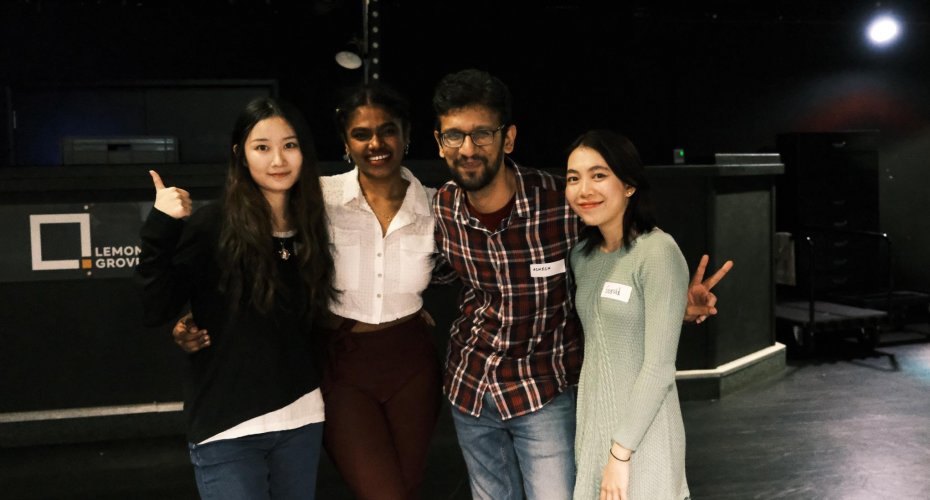
Hello everyone! I am Mya (Emerald) from Myanmar. I am an international postgraduate student, pursuing MA in Creative Writing. Two weeks ago, I went to a birthday party where one of my friends asked me, “Emerald, how do you know everyone?” Of course, I don’t know everyone . But I smiled, and answered, “ Societies? ” And, here I am… to tell you all about it!

It goes without saying that going to university does not always limit you to just study in your room, excel in your field, and then graduate and go your separate ways. Don’t we also crave connection? Be it classmates, course mates, flat mates or simply strangers you encounter in your amazing journey of life…
Lucky for you, during your journey of higher education, the University of Exeter offers you a wide range of over 250 societies under the Students’ Guild.
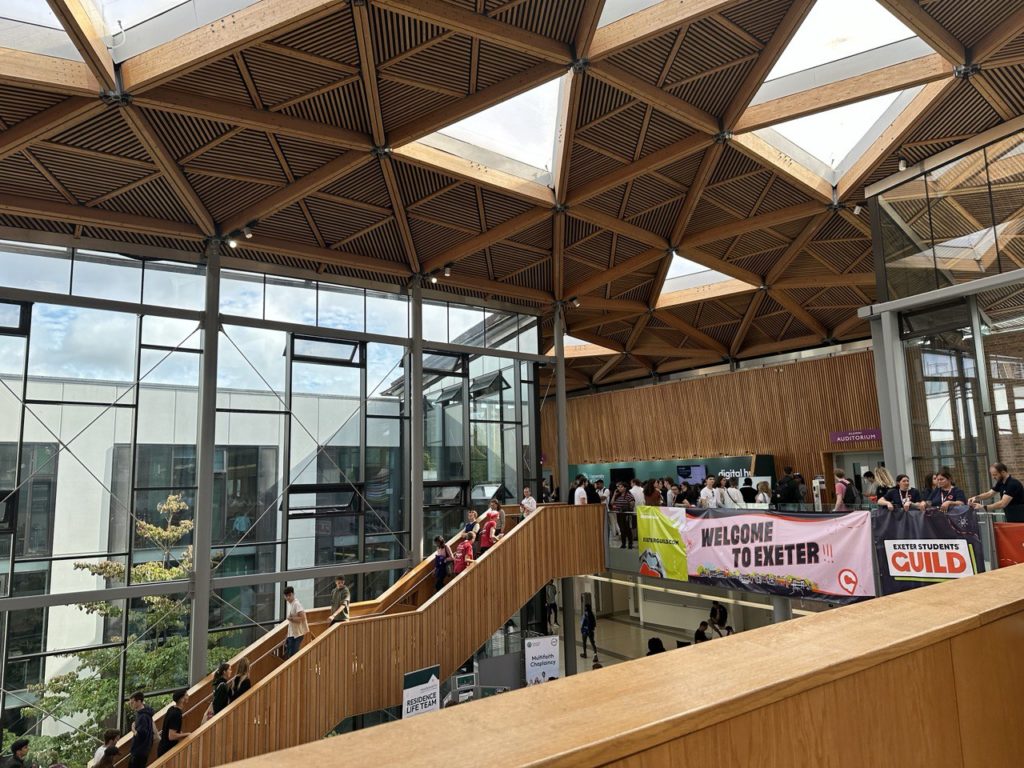
Societies at the University of Exeter
The Students’ Guild societies are split into different categories: Academic and course related, Employability, Faith/Worldview, Charity and Fundraising, Fitness, Hobbies and Interests, International, Creative, Cultural, Dance, Media, Medical, Music, Outdoor and Travel, Political and Theatre and Performance, and even Games! Which means there is definitely something for everyone! Feel free to research all the Exeter societies based on your existing hobbies and interests. To read more of their aims, social media pages and events on the Students’ Guild page, here is the link for you:
Exeter Students Guild (exeterguild.com)
The best part is if you feel like there should be a society at Exeter that doesn’t yet exist, you can apply to found a new society! Any student from any year can found a new society, by applying to the Students’ Guild with a minimum of three committee members. That’s what my Burmese friends did. We now have our own cultural society, namely, Burmese Society Exeter , where we hold potluck (where everyone brings a different dish to a meal) and social gathering events to bring more people together introducing our culture.
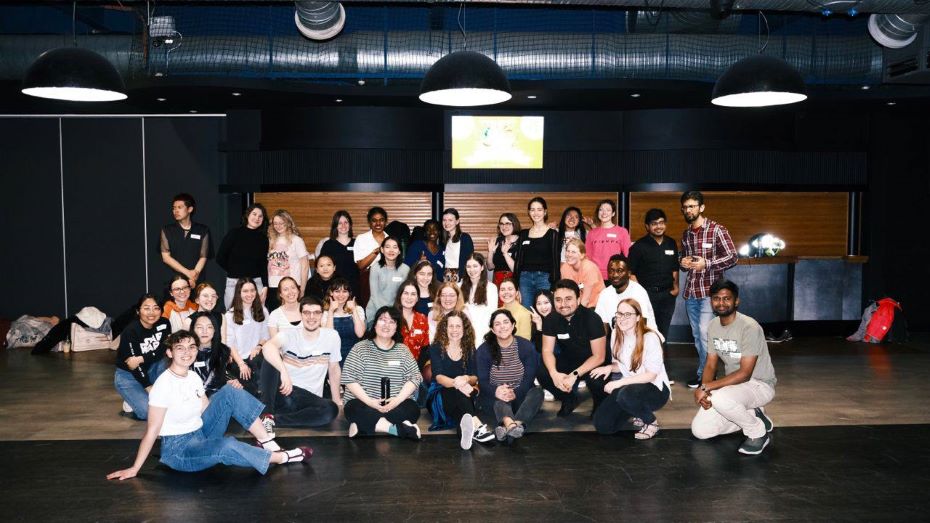
I am a postgraduate student which means I am only here for a year. My fellow Chevening scholars would often tease me that I am taking the ”Networking” part literally (We had to write four essays as part of the scholarship application: Leadership, Networking, Study in the UK, and Career plan). It’s true, as I decided to make use of my time while I am here which, to be honest, is a very short period of time.
Which Society to join?
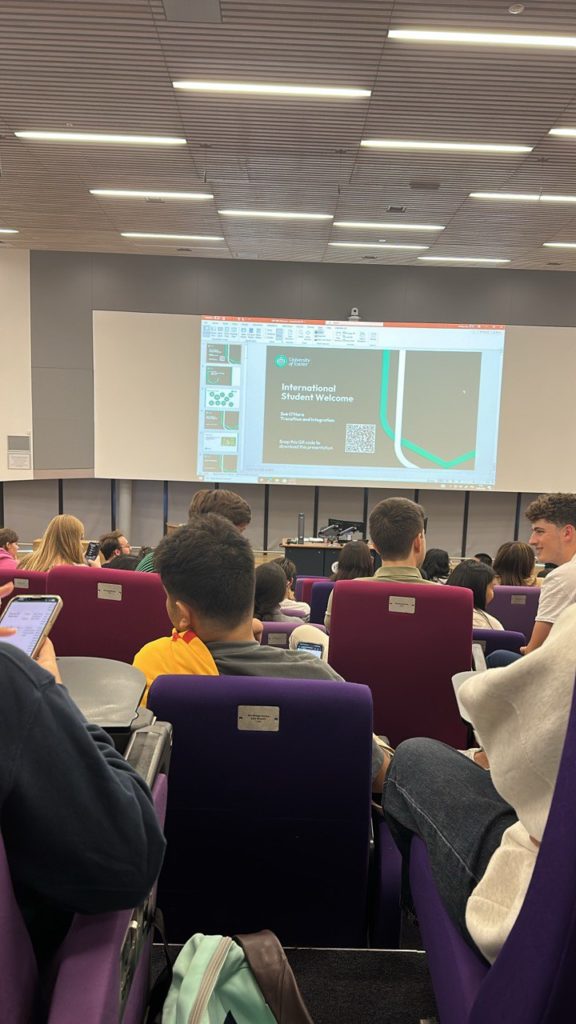
I was fascinated by the Students’ Guild society page even before coming here. I couldn’t decide which society to join. However, during Freshers’ Week (known as Welcome Week ), at the “International Student Welcome” seminar, I learnt that we can join as many societies as we want. The speaker of that day, Ms Sue O’Hara, advised that generally, students should think of joining three societies;
- one society that is related to your interest of studies or your career,
- one society that reminds you of home or something that would soothe your wellbeing, and
- the last one is something you would never think you would ever do in life, which means something fun or out of your comfort zone.
I think that’s why I joined taster sessions of Ceilidh dance. I had never been a dancer (dancing alone in my bedroom doesn’t count!) It was during Welcome Week, where we still had all the time in the world without having to worry about deadlines. So, I danced my way through my first few chapters of University.
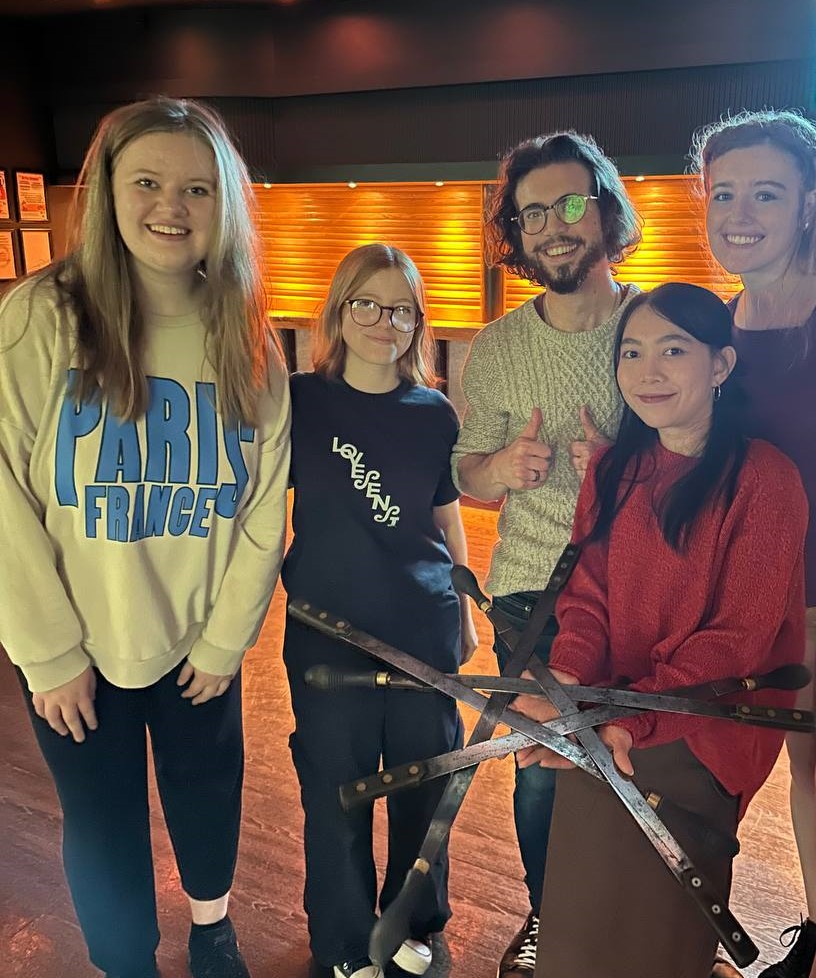
When to join Societies?
It’s very easy to find societies during Welcome Week. You don’t even have to search for anything because they find you. I still have a stack of colourful pamphlets offered by various societies on my shelf. Through information on handouts and on social media, and words of strangers I befriended at the Forum, I went to the taster sessions of Ceilidh , Beats and Bass , Exe Uni Swing , and Creative Writing Society . As a writer, I find it helpful to develop ideas according to the prompts during tasters of the Creative Writing Society. Plus, every society has its own Instagram account where you can see what they have been up to. If you don’t feel like googling, you can click the links from Instagram. They will direct you to where you can buy memberships, join tasters, or simply book upcoming events.
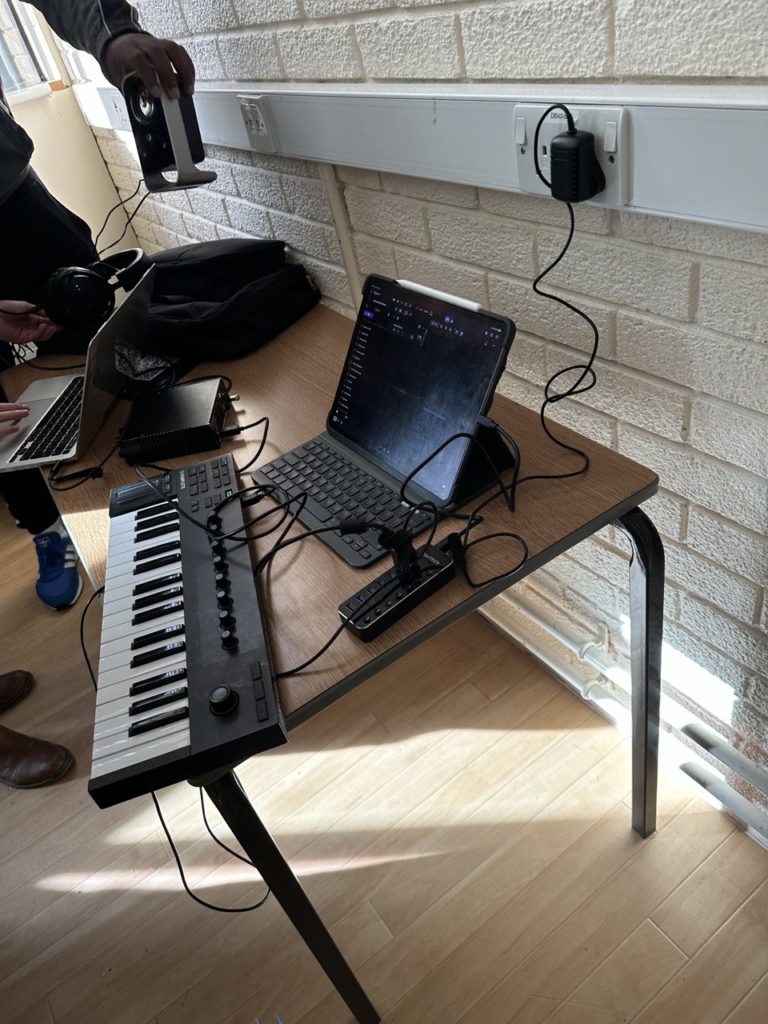
If you feel like you are unsure about which society to join, it’s okay! Year-round taster sessions are there for this reason. You can always try them out and see what’s right for you. You just have to look up the dates and put yourself out there to meet new people or to try new activities. What I have learnt from those sessions is that almost everyone is a beginner… be it a dancing class or volunteering. And everyone’s just as excited as you. They would not remember your name or what mistakes you did… nor would you remember the names of the people you have just met. That’s why you would exchange your contacts or social media accounts. Who knows – one of them might end up as your friend! I was also a beginner when I started out swing dancing. Well, I am still a beginner but I can now dance the moves of Lindy Hop .
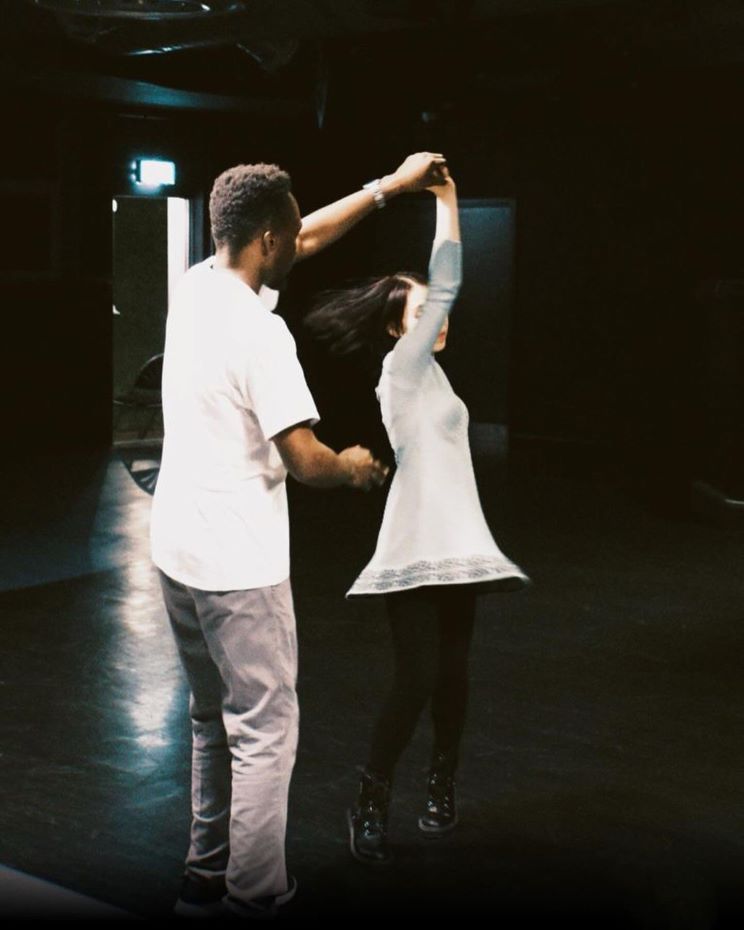
That’s what I did anyway. So far, I have bought the membership for the Razz Magazine since Term 1, and the Exe Uni Swing in Term 2 (I guess I am hooked on dancing). Standard membership of the Razz Mag costs 15 GBP for the entire year and as for the dance, standard membership costs 5 BGP. For the events held by the societies (for example, seasonal balls where you have a three-course meal with like-minded individuals!), students with membership won’t need to spend as much as those who are not members!
“Sometimes just to say your own truth out loud is enough to find others like you.” – Matt Haig, The Midnight Library
Being a part of society is a huge part of student life. However, that doesn’t mean that you have to buy memberships from the start of your uni life. My only advice for you is to try at least one society while you are here and be amazed by your hidden potential. And you’ll probably find that doing the activities which bring you joy might just be the most convenient way to make friends!

Oh and, just this morning, as I wrote this blog, Taylor Swift released a new album, “The Tortured Poets Department”; if you feel like you want to talk about it, or sing these new songs with fellow Swifties, let me tell you that we happen to have the Taylor Swift Society at the University of Exeter!
Publication types
- Case Reports

IMAGES
VIDEO
COMMENTS
The University of British Columbia. Activities between the University of British Columbia and Exeter include a joint research symposium focused on Community, Culture, Creativity, and Wellbeing held at Exeter in May 2018 and a faculty-led, co-funded initiatives in Sport, Exercise and Health Sciences, Climate Change and Digital Humanities.
Activities between the University of British Columbia and Exeter include a joint research symposium focused on Community, Culture, Creativity, and Wellbeing held at Exeter in May 2018 and a faculty-led, co-funded initiatives in Sport, Exercise and Health Sciences, Climate Change and Digital Humanities. ... About the University of Exeter Medical ...
Owen is a Lecturer within the University of Exeter Medical School, having joined in January 2022. Previously, he was a Research Associate in Sport & Health Science at the University, and has completed a PhD in Clinical Exercise Physiology (Sport & Health Science) in 2018.
The Exeter MR Research Centre is a collaboration of the University of Exeter, the Exeter Medical School and the University of Plymouth. The Centre is jointly run by the Schools of Physics, Sports Science and Psychology at Exeter, the Institute of Neuroscience at Plymouth and the Exeter Medical School.
University of Exeter Class of 2022 Progression Scholarship. We are pleased to offer graduating University of Exeter students completing their degree in Summer 2022 and progressing direct to a standalone taught Masters degree (eg MA; MSc; MRes; MFA) or research degree (eg MPhil/PhD) with us a scholarship towards the cost of their tuition fees.
Each 15-credit module in the MSc Leading Clinical Research Delivery therefore requires 150 hours (around 12 hours of study per week, across a term). The 60-credit Master's project is a full-year project that should take around 600 hours to complete. Most of your study will be asynchronous, allowing you to work through the online material at a ...
Faculty of Environment, Science and Economy Research; Faculty of Health and Life Sciences Research; Our institutes; Our networks; Our services. Facilities; Services for staff and students; News; Events. Events listing; Postgraduate Research Showcase; Soapbox Science; About. Contact us; About Research and Innovation at Exeter; Public engagement ...
The University of British Columbia. Activities between the University of British Columbia and Exeter include a joint research symposium focused on Community, Culture, Creativity, and Wellbeing held at Exeter in May 2018 and a faculty-led, co-funded initiatives in Sport, Exercise and Health Sciences, Climate Change and Digital Humanities.
We help academics and patient-facing experts like doctors and other health professionals bring their research to labs, ensuring that scientific discoveries find their way, or translate, to the bedside or clinic. By working across five core themes, we are helping to improve diagnosis, treatment and care for patients. View all research projects.
The DHSC through the NIHR has awarded £8 million to the project, which will fund the project for 3.5 years. Patient charities MND Association, My Name'5 Doddie Foundation and MND Scotland, and medical research charityLifeArc intend to provide additional support to extend the study to 5 years and support additional lab research.
About Research and Innovation at Exeter. As a Russell Group University our research makes a difference across the world. We believe in breaking down traditional barriers between academic disciplines so the bigger problems of the 21st Century can be considered from human as well as physical perspectives. We are constantly seeking new ways to ...
The Medical Imaging Centre is a major research facility within the Department of Health and Care Professions. This state-of-the-art facility is located on St Luke's Campus, University of Exeter, and supports the Faculty of Health and Life Sciences, as well as other Faculties and external users. We provide both imaging equipment and ...
The research was led by Dr Lily Hawkins, now of the University of Exeter Medical School, during her PhD study at Aston University. The researchers recruited 52 volunteers, all social media users, with a mean age of 22, and split them into two groups.
It has highly trained 'research dedicated' nurses, scientists, doctors and support staff. Our outstanding research facilities include bespoke wards and consulting rooms, sample handling laboratories and specialist equipment for investigating exercise, physiology and metabolism. Read more Tel: 01392 408181 Email: [email protected].
Dr Robert Meertens, Senior Lecturer at the University of Exeter, said: "We know health services for osteoporosis diagnosis are stretched in the UK. We believe our collaborative research can contribute to a novel pathway for earlier identification of people at a high risk of low impact fractures.
The University of British Columbia. Activities between the University of British Columbia and Exeter include a joint research symposium focused on Community, Culture, Creativity, and Wellbeing held at Exeter in May 2018 and a faculty-led, co-funded initiatives in Sport, Exercise and Health Sciences, Climate Change and Digital Humanities.
Activities between the University of British Columbia and Exeter include a joint research symposium focused on Community, Culture, Creativity, and Wellbeing held at Exeter in May 2018 and a faculty-led, co-funded initiatives in Sport, Exercise and Health Sciences, Climate Change and Digital Humanities.
Co-author Dr Helen Foster-Collins, Lecturer and Postdoctoral Research Fellow at the University of Exeter, said: "We know that around two thirds of people with dementia in the UK live at home, so finding ways we can support individuals with dementia and their carers can have a massive impact on quality of life.
Societies at the University of Exeter The Students' Guild societies are split into different categories: Academic and course related, Employability, Faith/Worldview, Charity and Fundraising, Fitness, Hobbies and Interests, International, Creative, Cultural, Dance, Media, Medical, Music, Outdoor and Travel, Political and Theatre and ...
Affiliations 1 Department of Pediatrics and Pediatric Infectious Diseases, Institute of Child's Health, Sechenov First Moscow State Medical University (Sechenov University), Moscow, Russia.; 2 Inflammation, Repair, and Development Section, National Heart and Lung Institute, Faculty of Medicine, Imperial College London, London, United Kingdom.
4 Chief Medical Officer of City Clinical Hospital No. 52 of Moscow Healthcare Department, 3 Pekhotnaya Street, Moscow, 123182, Russia. 5 Department of Internal Medicine, Faculty of Additional Professional Education at Federal State Autonomous Educational Institution of Higher Education Pirogov Russian National Research Medical University, 1 ...
Undergraduate Programs. General Medicine. Dentistry. Pharmacy. Programmes in Russian. Faculty Therapy Department #2. General Medicine. Field of study: Clinical Medicine Level: Specialist's Degree Code within the Russian education system: 31.05.01 Certificate, degree or qualification: Medical Doctor Language of study: Russian, English Mode of ...
The establishment of the IDM and MoU signing ceremony was witnessed by Professor Sun Dong, Secretary for Innovation, Technology and Industry, HKSAR Government, Mr Lester Garson Huang, Council Chairman of CityUHK, and Professor Freddy Boey, President of CityUHK. "The CityUHK Institute of Digital Medicine aligns seamlessly with the government's strategic direction of developing Hong Kong as an ...
University entrance. Pirogov Russian National Research Medical University (formerly known as Russian State Medical University or RSMU) is a medical higher education institution in Moscow, Russia founded in 1906. It is fully accredited and recognized by Russia's Ministry of Education and Science and is under the authority of the Ministry of ...